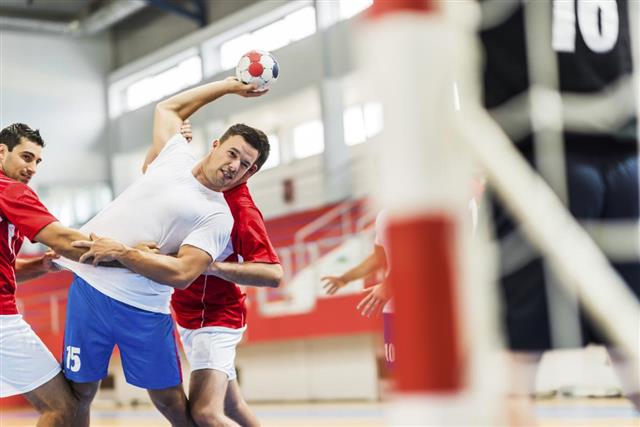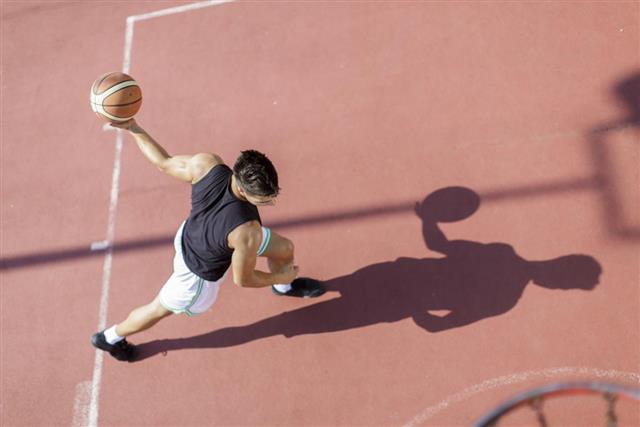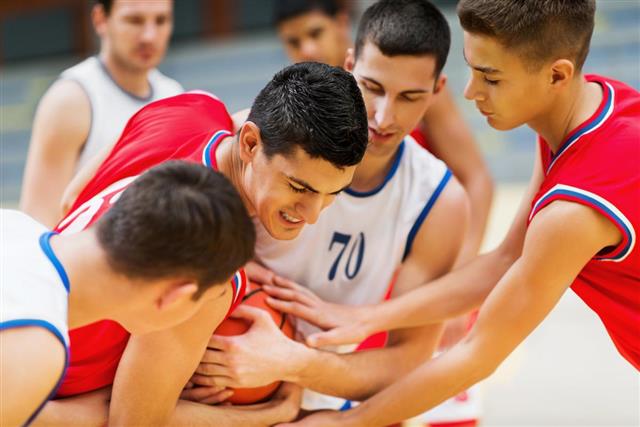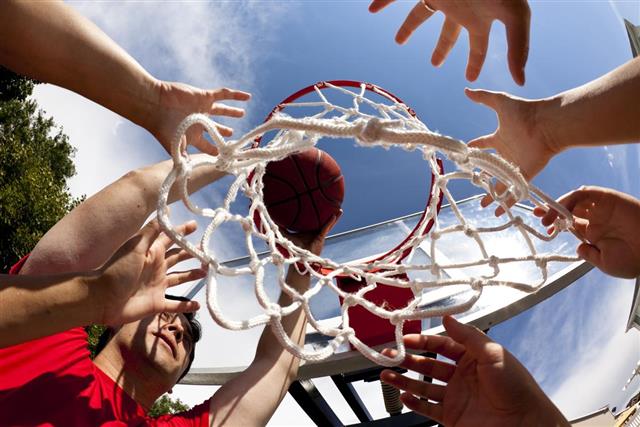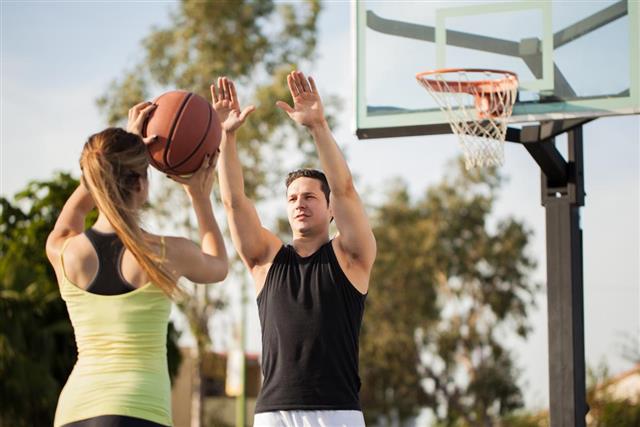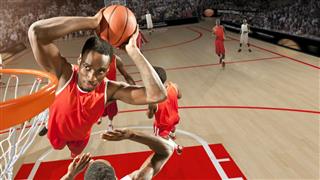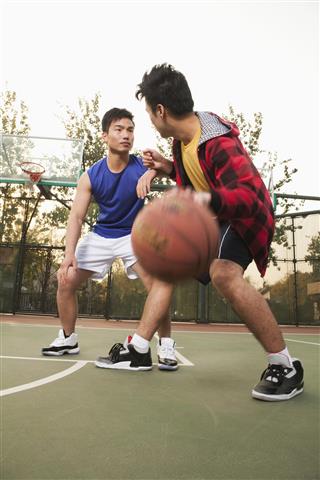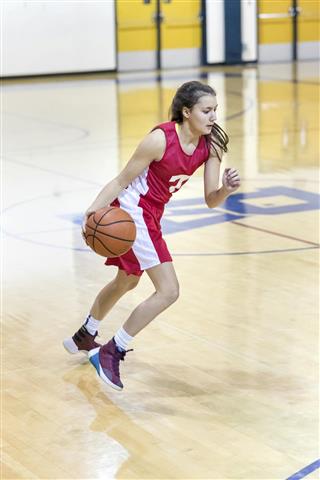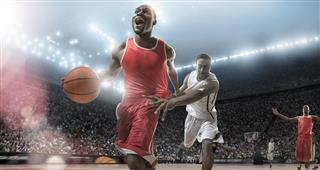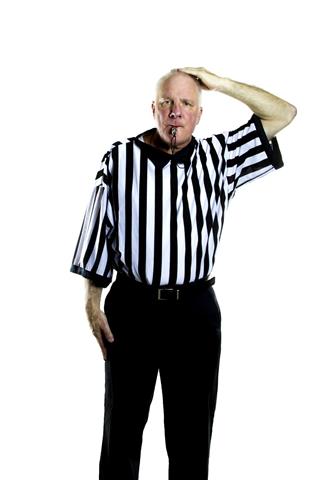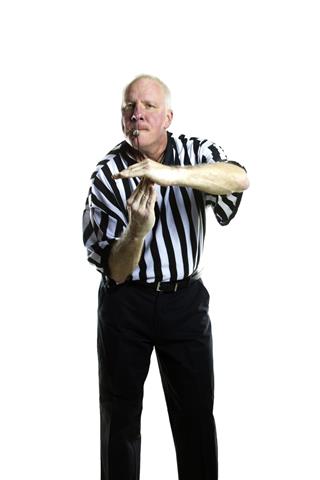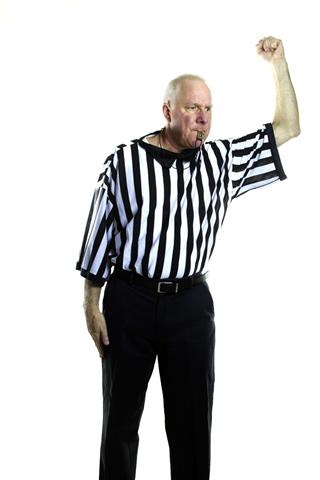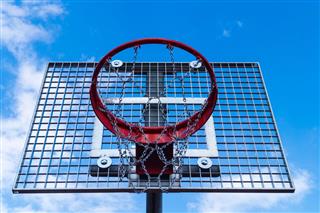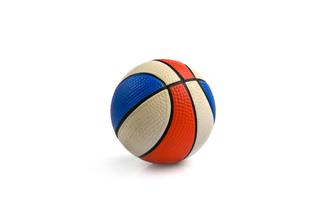
Besides knowing all the rules and regulations of basketball, understanding the fouls and violations is also necessary. Read the SportsAspire article to find out what these fouls are, in order to become a better team player.
What is a foul? While playing basketball, any player who breaks the rules of the game, making illegal personal contact with the other team, and has unsportsmanlike behavior. There are four main types of fouls:
- Personal
- Technical
- Flagrant
- Team foul
Basketball Violations and Fouls
One of the important parts of coaching basketball to anyone is understanding the fouls and violations which occur during practices and games. The fouls explained below will teach you to be an honest and responsible player.
24-Second Violation
All NBA teams have to make a shot within 24 seconds. If not, then the violation results in change of ball possession.
8-Second Violation
After the basket is made by a team, the offensive team gets only 8 seconds to bring the ball over the mid court line.
Blocking
Once the game or practice is on, a player tries to position his or her body in a way to prevent the opponent from getting ahead. Blocking is mostly done by the defense team players.
Charging
This is an offense team’s foul. One of the offensive team’s player runs into a defending team’s players who has already established his or her position.
Defensive Foul
When a player practices an unnecessary or illegal contact with either the ball or away from the ball, a defensive foul is said to have been committed.
Defensive Foul
The offense player who dribbles the ball, stops, and then begins to dribble it again is said to have committed the double dribble violation.
Elbowing
Elbowing can be done by any of the teams. This is when a player swings his or her elbows in a forceful, excessive manner. The elbowing player makes contact with the opponent at this point.
Five-Second Violation
A five-second throw-in violation generally occurs during a throw-in when the ball is not passed by the player who is supposed to inbound the ball before 5 seconds have gone by after he or she got the ball. Usually the penalty for a five-second violation is losing of the ball from that team.
Flagrant Foul
This is a serious contact foul where a player tries to unnecessarily and intentionally make contact during the game. Usually the penalty for flagrant foul is that the other team gets 2 free throws and the possession of the basketball out-of-bounds. And the player who committed the flagrant foul is automatically disqualified from the game.
Floor Violation
This is an action of a player who violates the rules but doesn’t commit any foul or hinder the opponent. Usually the penalty for floor violation is a change of ball possession.
Foul Trouble
During the track of a game, one or more players who have collected way too many fouls are said to be in “foul trouble”. All the players who have collected 5 fouls in high school and college game, or 6 fouls in NBA game will be disqualified or eliminated from that game. Which is why all teams must be careful not to accumulate more than 6 fouls in each half.
Goaltending
This violation is generally committed by the defense team’s player. The player illegally interferes with a shot on the rim or on a downward path to the hoop. Usually the penalty for this violation results in the shot by the offense team being assumed in and they receive a basket.
Hand Check
This is a personal foul done by the defense team player. When he or she occasionally or continuously uses his or her hand(s) on the opponent player who has the ball.
Holding
Whether you are in a defense or offense team, using your hands to interfere your opponent’s freedom of movement commits a holding fouls.
Illegal Screen
A player who is setting the screen still moves when the defense team’s player makes contact with him or her. Illegal screen is a type of blocking where the defender is prevented from moving around the screen.
Intentional Foul
This foul is committed by the defense team’s player on purpose to stop the clock. Usually in a college basketball game, the team which was fouled gets the advantage of 2 free throws and also the possession of the ball.
Lane Violation
At the time of a free throw, if a player enters the lane too soon, lane violation is said to have been committed. Usually the penalty for lane violation results in a turnover or the other team receives another free throw.
Offensive Foul
This is a personal foul committed by the offense team’s player. The player, who has the ball in his or her hands, charges into the defense team’s player who is standing in a stationary, defensive position.
Over-the-Back
A player who jumps on and goes over the back of his or her opponent who is trying to attempt a rebound with the ball.
Palming
A player who takes his or her hand under the ball and scoops it while dribbling is said to have committed the palming violation.
Reaching In
When a player tries to steal the ball from the offense team’s player, the player extends his or her arm and hand out, making contact with the player who has the ball.
Shooting Foul
This foul is committed when a player is fouled while in the act of shooting the ball. If the player misses the shot, he or she receives 2 or 3 free throw, depending on which shot he or she was originally taking.
Technical Foul
Any violations and misconduct which detriments the game is called a technical foul. Usually the penalty for a technical foul is a free throw to the opponent team.
Three in the Key
Any defense or offense player cannot remain in the lane for more than 3 seconds at a time. If the violation is committed, it results in change of ball possession.
Traveling
The offense team’s player who has the ball and takes too many steps, anywhere on the court, without dribbling the ball is said to have committed this violation.
Tripping
When a player uses his or her foot or leg to make the opponent to lose or fall during the game is said to have committed the tripping foul.
Unsportsmanlike Foul
Any player or team that plays unfairly, unethically, and/or dishonorably is said to have committed the unsportsmanlike foul. Such fouls are usually given a penalty of a free throw to the opponent team.
